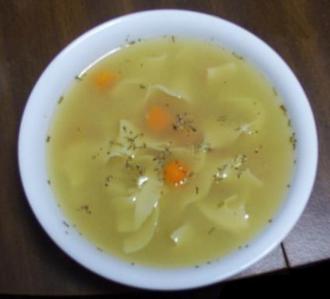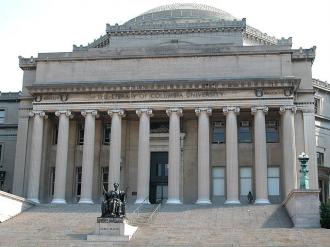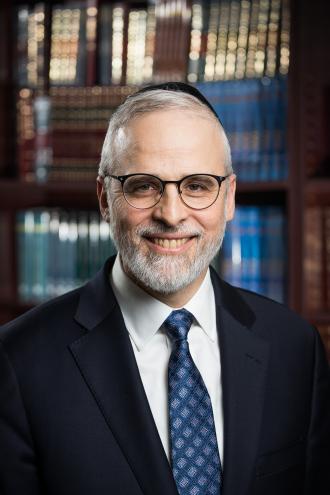Question:
“I find it extremely difficult not to eat until the completion of Rosh Hashanah davening, and I understand that many Yeshivos make kiddush before blowing shofar. May I introduce this practice in my shul?”
Answer:
Before we discuss whether one may eat before hearing the shofar blowing, we must first analyze the issue of eating before performing any other mitzvah.
Regarding someone who returns home after a long day at work, the Gemara states: Our Sages built a fence to protect their words, so that a person should not return from the field in the evening and say, ‘I’ll eat a little, drink a little, sleep a little, and then recite kerias shma and pray,’ because we are concerned that sleep will overtake him, resulting in his sleeping the entire night without fulfilling his mitzvos. Instead, someone returning in the evening from the field should enter the Beis HaKenesses. If he usually studies Tanach, he should do so. If he usually studies Mishnah, he should do so. Then he should read kerias shma and pray.” (Nowadays, we refer to “reading kerias shma and praying” as “davening maariv.”) Only then should he go home to eat supper (Brachos 4b).
It would appear that Chazal prohibited eating, drinking and sleeping before performing the mitzvos one is obliged to fulfill. To determine whether this is relevant to the mitzvah of shofar, we need to resolve a few questions:
All or nothing?
The Taz asks: The Gemara says that he should not say, “I’ll eat a little, drink a little and sleep a little,” before first davening maariv. Did our Sages prohibit only performing all three, or did they prohibit any one of the three? If they, indeed, prohibited only all three, the prohibition reported by this Gemara would not apply unless someone planned to nap, eat and drink before hearing the shofar. On the other hand, if they prohibited any of the three, one may not eat or even drink before davening maariv, and we will need to discuss the ramifications of the prohibition to eat or drink before hearing the shofar.
The Taz concludes that the Gemara prohibited doing any one of these three activities before fulfilling the mitzvah. His reasoning is that one may certainly not sleep for even a few minutes without first davening maariv, lest he fall asleep for the night and not fulfill his mitzvos. Thus, sleeping even “a little” must be prohibited before reciting shma and davening. If so, this implies that it is also prohibited to “eat a little” even if one does not drink or sleep, or to “drink a little” even if one does not eat or sleep (Taz, Orach Chayim 235:3).
Furthermore, based on another discussion that is beyond the scope of this article, the Shulchan Aruch rules that one may not begin eating even a half hour before the time for davening maariv begins. If it is already a half hour before the time for davening maariv, one must wait until the time of maariv arrives, then daven, and only then is it permitted to eat (Orach Chayim 235:2). Although the Taz disagrees, the consensus of late authorities accepts the ruling of the Shulchan Aruch (Mishnah Berurah 235:18.)
Despite the Shulchan Aruch's conclusion that one may not eat prior to davening maariv, many authorities permit this, if one always davens maariv at a specific minyan or if someone is available to remind him to daven (see Magen Avraham 235:4; Mishnah Berurah 235:18). Others permit eating before davening maariv if one sets an alarm clock as a reminder.
Time for a good snack?
In a situation when one may not eat or drink before davening maariv, what eating or drinking is prohibited? Does this prohibition include even eating a snack, or does it only apply to a meal?
The wording of the Gemara, “a person should not return in the evening and say, ‘I’ll eat a little, drink a little,’” implies that even a small snack is prohibited, and this is indeed the opinion of some early authorities (Terumas HaDeshen #109). However, the consensus of later authorities is to follow the opinion of the Tur (Orach Chayim 235), who permits snacking before maariv, and prohibits only eating a meal (Magen Avraham 235:4).
One man's snack is another's meal
Now that we have distinguished between eating a snack, which is permitted, and eating a meal, which is not, we need to define our categories. At what point does the permitted snack become a forbidden meal?
To answer this question we will borrow from a related halachic discussion. The Mishnah rules that during Sukkos one is required to eat his meals in a sukkah, but casual (arai) eating and drinking is permitted outside the sukkah (Sukkah 25a). How does one define what is arai and what is not? The Mishnah and the Gemara conclude that eating up to a kebeitzah (the size of an egg) of bread or mezonos does not require a sukkah, but that one may not eat more than a kebeitzah of bread outside a sukkah (Sukkah 26b - 27a).
Since the Gemara holds that up to a kebeitzah of bread or mezonos is a snack that does not require a sukkah, the halachic authorities rule that this amount may be eaten before maariv (Mishnah Berurah 235:16; see also Shulchan Aruch 232:3).
The halachic authorities compare sukkah to maariv in yet another way. Just as one may eat an unlimited quantity of fruit or vegetables outside the sukkah, since this is always considered eating arai (Shulchan Aruch and Rama, Orach Chayim 639:2), one may eat an unlimited quantity of fruit or vegetables prior to davening maariv, since this qualifies as a snack and not a meal (see Magen Avraham 235:4).
BEVERAGE VERSUS FRUIT
This leads us to a basic question: If one may eat an unlimited quantity of fruit and vegetables outside the sukkah and before davening maariv, why is one limited in how much beverage one may drink before davening maariv? If halacha considers consuming fruits and vegetables as casual eating that is permitted before maariv, why should drinking be judged as any less casual?
The answer to this question lies in a terse comment of the Magen Avraham wherein he rules: One may drink as much as one wants outside the sukkah, but must be careful not to drink more than a kebeitzah of beverage before davening mincha, lest he drink too much and become intoxicated to the extent that he cannot daven (Magen Avraham 232:17). This ruling understands that the prohibition against drinking prior to davening is limited to intoxicating beverages (Mishnah Berurah 232:35). When the Gemara was concerned “that a person should not return from the field in the evening and say, ‘I’ll drink a little,’” the concern was only about alcoholic drinks.
Accordingly, once the time comes to perform a mitzvah (and perhaps even a half-hour before), one may not eat a meal or drink more than a kebeitzah of alcoholic beverage without first performing the mitzvah, but one may eat as much fruit and vegetables, and drink as much non-alcoholic beverages, as one desires. One may also snack on up to a kebeitzah of bread or mezonos, but no more.
NON-INTOXICATING EXCEPTION -- KIDDUSH AND HAVDALAH
There are at least two mitzvos that stand as exceptions to the previous rule: The Shulchan Aruch prohibits all snacking and drinking before kiddush and havdalah, once the time to fulfill these mitzvos has arrived (Orach Chayim 271:4; 299:1).
Why is it prohibited to snack before kiddush and havdalah, whereas one may snack before one has davened maariv? The Magen Avraham explains that snacking is prohibited before reciting kiddush or havdalah because one is obligated to fulfill these mitzvos at the very beginning of the evening (Magen Avraham 235:4). I presume he means that Chazal prohibited snacking in order to guarantee that the mitzvah is performed immediately. However, regarding other mitzvos, where the concern is only that he might forget to perform the mitzvah altogether, it is sufficient to ban eating a meal or doing something that might result in not performing the mitzvah at all.
KIDDUSH VERSUS HAVDALAH
With this background, we can now explain the following curious difference between kiddush and havdalah. Prior to reciting kiddush, one is prohibited to drink anything, even water, whereas prior to reciting havdalah, although one may not snack or drink most beverages, one may drink water (Shulchan Aruch Orach Chayim 271:4; 299:1). Why this distinction between kiddush and havdalah?
It seems that although both kiddush and havdalah should be fulfilled at the beginning of the evening, Chazal encouraged reciting kiddush early, in order to greet Shabbos as early as possible. On the other hand, although one should recite havdalah early in the night, one should not rush Shabbos out the door, but simply be certain to recite havdalah before engaging in after-Shabbos activities. Therefore, Chazal permitted drinking water before reciting havdalah, although they prohibited doing so before kiddush, to guarantee that people recite kiddush quickly.
For the same reason, there is another major difference between kiddush and havdalah. If someone began a meal early Friday afternoon and it extended into Shabbos, he must stop eating as soon as Shabbos arrives and recite kiddush. Although one may continue the meal after reciting kiddush and wait to daven maariv and recite shma after the meal is over, he may not continue the meal without first reciting kiddush.
However, if this happened when Shabbos ends, one has no requirement to recite havdalah until the meal is over. This is why we commonly extend seudah shlishis (in Yiddish called shalosh seudos) into the night, and bensch, daven maariv, and recite havdalah only when the meal is over.
DAY VERSUS NIGHT
So far, we have explained that once the time to perform a mitzvah arrives, one may not eat a meal or drink a significant quantity of intoxicating beverage before one has performed the mitzvah. We have also seen that some authorities prohibit even snacking. We have learned further that prior to reciting kiddush or havdalah, halacha prohibits any snacking or drinking at all, with the only exception that one may drink water prior to havdalah.
One possibility that we have not yet explored is whether there is a halachic difference between a mitzvah performed in the daytime and one performed at night. Perhaps there is less concern regarding a daytime mitzvah, and Chazal prohibited eating only prior to performing a nighttime mitzvah, lest eating after a hard day’s work cause one to fall asleep before performing the mitzvah. According to this suggestion, one could eat a meal before fulfilling the mitzvos of shofar, lulav or tefillin.
However, this distinction does not accord with the accepted halacha, as we find several instances where someone may not begin eating a meal before fulfilling a daytime mitzvah such as davening mincha (Mishnah Shabbos 9b), taking lulav (Sukkah 38a) or blowing shofar (Tosefta, Shabbos 1:4, as explained by Magen Avraham 235:4).
EARLY NIGHT SNACK
As mentioned above, although some authorities contend that prior to maariv one may not eat or drink anything, the consensus is to allow snacks, non-alcoholic beverages and small quantities of alcoholic drinks. Notwithstanding this decision, the Magen Avraham (692:7), after reaching this conclusion, makes the strange comment that one may eat a snack before the reading of the Megillah only in extenuating circumstances. This ruling is all the more confusing since it contradicts his own conclusion permitting snacking before fulfilling the Torah mitzvos of taking lulav and reciting shma (Magen Avraham 235:4; 652:4). Later authorities assume that only under extenuating circumstances did the Magen Avraham permit snacking before fulfilling any mitzvah (see Mateh Efrayim 588:2; Shu”t Chasam Sofer, Yoreh Deah #7 and others).
LET’S TALK ABOUT SHOFAR
Based on this Magen Avraham, many prominent authorities rule that someone who is weak or ill may recite kiddush and eat less than a kebeitzah of food prior to hearing the shofar, but emphasize that this should be done in private, so that other people will not assume that they may also be lenient (Mateh Efrayim 588:2). According to this position, snacking before shofar blowing is permitted only for the weak and the ill.
BEFORE SHOFAR OR AFTER?
If someone must eat before the end of Rosh Hashanah davening, is it better for him to eat before shofar blowing, or to hear shofar blowing first and then make kiddush and eat? On the one hand, as we have demonstrated, there is a prohibition against eating before fulfilling a required mitzvah, which would imply that he should first fulfill the mitzvah of shofar and only then eat. Although he would still eat before davening musaf, this is less of a concern than before shofar, since musaf is only miderabbanan and shofar is a Torah mitzvah.
On the other hand, one who eats before hearing the shofar thereby interrupts between the bracha recited over the shofar and the later shofar soundings.
FAMILY FEUD
It is curious to note a dispute between closely-related gedolim on this issue. Rabbi Akiva Eiger maintains that it is better not to eat before the shofar, but to hear shofar first and then eat, even though this results in the kiddush and the brachos on the food interrupting between the brachos of shofar and the later shofar blowing. He was more concerned about eating before fulfilling the mitzvah than he was about interrupting after the bracha.
On the other hand, his son-in-law, the Chasam Sofer (Shu”t Yoreh Deah #7, end) contends that someone ill who cannot wait to eat until the end of davening should discreetly make Kiddush and eat between shacharis and shofar blowing. He contends that it is better to eat before shofar than to interrupt between the bracha on shofar and the later soundings. (It is also noteworthy that the Chasam Sofer implies that someone who is ill may eat even a meal before shofar blowing.)
The above authorities all seem opposed to any eating before the shofar, except in extenuating circumstances. This places on a shaky footing the custom of making kiddush for the entire congregation before shofar.
However, the Sdei Chemed (vol. 8 pg 325 s.v. vishamati) cites several sources recording a practice in Ashkenazic communities to recite kiddush and eat a small snack before shofar blowing. The prevalent practice in Yeshivos reflects this approach, considering the long wait until davening is over as an extenuating circumstance. This became the subject of a major dispute among the great Torah leaders in America a generation ago, with Rav Henkin, zt”l, strongly opposed to the practice of eating before shofar blowing for anyone not clearly ill or weak, while Rav Aharon Kotler zt”l championed the practice of making kiddush before shofar.
HOW MUCH IS A SNACK?
One should bear in mind that the dispute among these authorities is only whether one may eat a snack before shofar and musaf. The prevalent yeshiva custom to recite kiddush prior to shofar blowing is intended only to permit people to eat up to a kebeitzah-sized piece of cake. Unfortunately, the average hungry person placed in front of a huge pile of cake has difficulty restricting himself to less than a kebeitzah.
Although the early sources do not countenance this, a contemporary authority quotes a basis to be lenient: since everyone returns to shul for the rest of davening immediately after reciting kiddush, people will clearly remind one another to not miss shofar blowing (Shemiras Shabbos Kehilchasah, Volume 2 52:14:52, quoting Rav Shelomoh Zalman Auerbach). (I personally categorize this last line of reasoning as a limud zechus, a rationale to explain behavior that seems to run against halacha, rather than as a solid reason to justify the practice.)
PROPOSED SOLUTION
For those who find it difficult to eat less than a kebeitzah, and are uncomfortable relying on this last heter, which clearly runs counter to the approach of most early authorities, I suggest the following: Many foods, such as potatoes, yams, quinoa, corn and rice are highly filling, even though they technical qualify as vegetables for these halachos. In order to fulfill the requirement of kiddush bimkom seudah -- the halachic requirement that one eat a “meal” when fulfilling the mitzvah of Kiddush -- one should eat at least a kezayis (an olive-sized piece) of cake, crackers, pretzels, or some other grain product. In order to avoid eating more than a kebeitzah of these items, which most authorities forbid, one should be careful to eat less than a kebeitzah of items made from the five grains, and then eat a substantive “snack” of potatoes or some other satisfying vegetable. This requires less self-discipline than restricting oneself to a kebeitzah of cake. I also strongly suggest that any shul or yeshiva that has a kiddush before shofar should instruct people not to eat more than a kebeitzah of cake.
CONCLUSION
When we hear the shofar blow, we should remember that we, the Jewish people, are crowning Hashem as our King and the King of the universe. Studying the laws that pertain to this mitzvah is an important way in which we can show our acceptance of His kingship.















